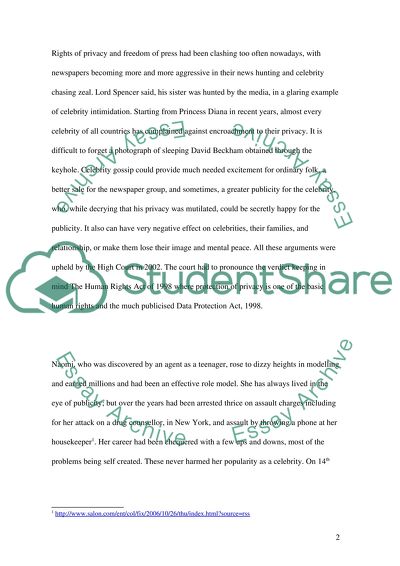Cite this document
(“Privacy Rights: The Naomi Campbell Case Study Example | Topics and Well Written Essays - 1500 words”, n.d.)
Retrieved from https://studentshare.org/law/1511395-privacy-rights
Retrieved from https://studentshare.org/law/1511395-privacy-rights
(Privacy Rights: The Naomi Campbell Case Study Example | Topics and Well Written Essays - 1500 Words)
https://studentshare.org/law/1511395-privacy-rights.
https://studentshare.org/law/1511395-privacy-rights.
“Privacy Rights: The Naomi Campbell Case Study Example | Topics and Well Written Essays - 1500 Words”, n.d. https://studentshare.org/law/1511395-privacy-rights.


